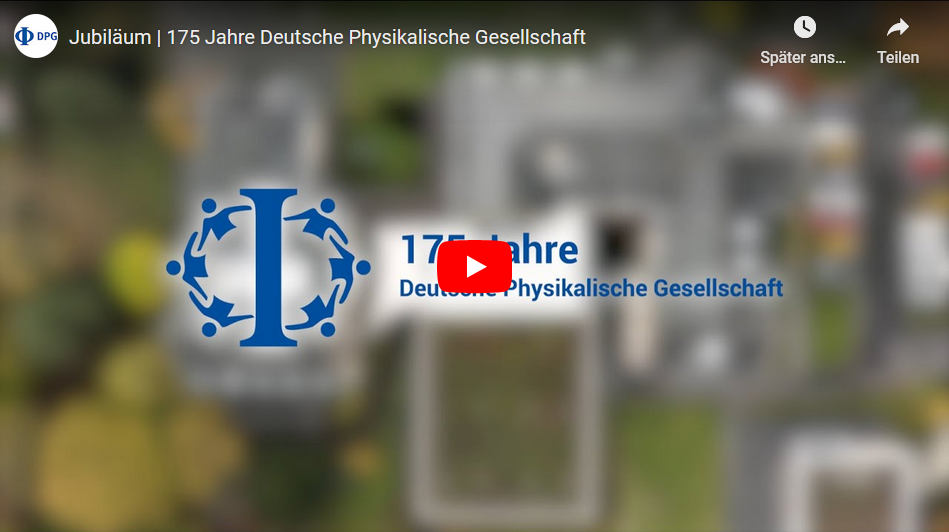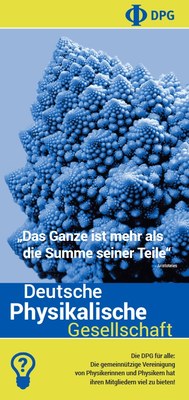Profile and Understanding
The German Physical Society (DPG) is there for everyone: students, professors, pupils, teachers, people working in industry or simply interested in physics. The DPG is the mouthpiece of physics and contact for people interested in physics. As a non-profit association, it does not pursue any economic interests and is based on the principles of voluntarism and voluntary work. In the DPG, young scientists meet Nobel Laureates, interested parties with experts and young with old. Together they form the world's largest physical society.
The DPG commits itself and its members to stand up for freedom, tolerance, truthfulness and dignity in science and to be aware that those working in science are particularly responsible for shaping the whole of human life. The principles of the association are laid down in the DPG's statutes and its implementing provisions.

